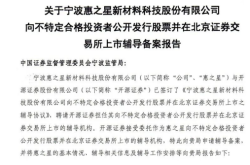Apple's Challenges in China: Beyond the iPhone, a Broader Market Decline?
![]() 03/16 2025
03/16 2025
![]() 678
678
Without exaggeration, Apple, the world's leading technology company, is renowned for producing high-quality products that sell exceptionally well globally. Each of its innovations, such as the iPhone, iPad, AirPods, and Apple Watch, has not only set new benchmarks but also sparked imitation and learning from other manufacturers.
In China, Apple enjoys a vast fan base. Historically, every Apple product was a premium offering, dominating the high-end market with little competition.
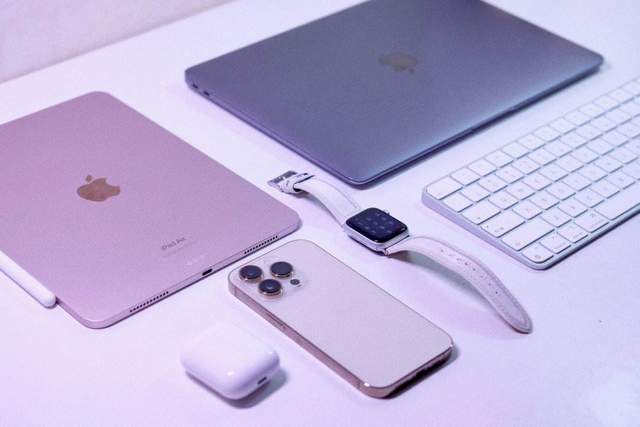
However, recent developments suggest that Apple's fortunes in China are waning. The challenges extend beyond the iPhone, impacting other flagship products like the iPad, AirPods, and Apple Watch.

Starting with the iPhone, Apple's sales have declined since Huawei launched the Mate60 in 2023, featuring 5G and the Kirin chip. Additionally, Xiaomi's relentless push into the high-end market has further destabilized Apple's position in China.
This decline is evident in the high-end market share (above $600), which fell from 75% in 2022 to 54% in 2024, a drop of over a quarter. Concurrently, Huawei and Xiaomi have seen their shares rise, with Huawei doubling from 12% to 29% and Xiaomi doubling from around 2% to 5%.
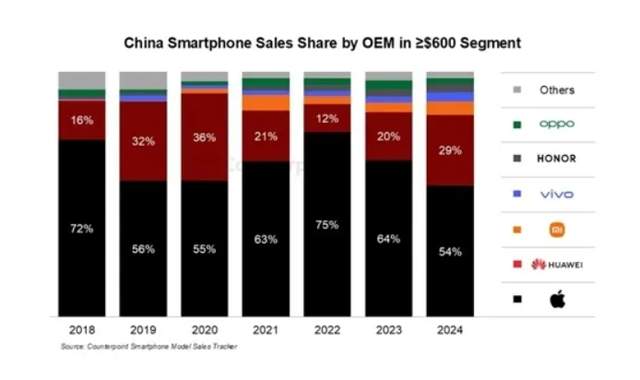
Moving on to TWS (true wireless) earphones, Apple's AirPods once dominated the market. However, by 2024, Apple's share had plummeted to less than 10%, failing to maintain a top-three position. Among the top five vendors, Apple was the only one experiencing a decline.
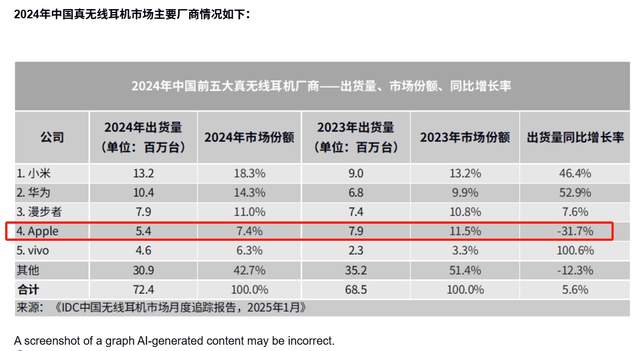
Similarly, the iPad's market share in China has eroded, dropping from over 50% to just 26%, now surpassed by Huawei. In 2024, Apple was the only company experiencing a decline in this segment, while others grew.
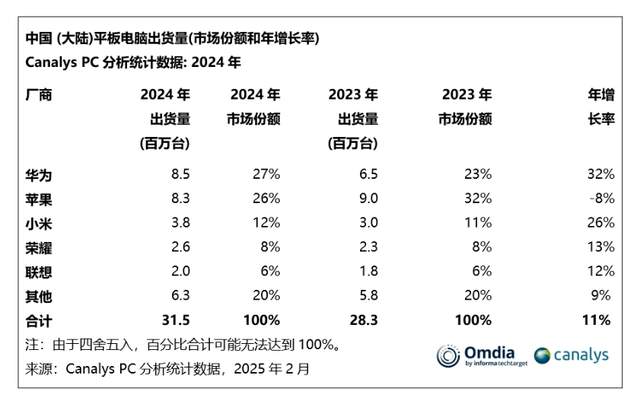
In the smartwatch market, Apple's position has also weakened. According to IDC's 2024 statistics on wrist-worn devices, Apple ranks fourth, with a share of only 7.6% and a growth rate of 1.8%, significantly below the industry average of 19.3%. Huawei leads, followed by Xiaomi and BBK.
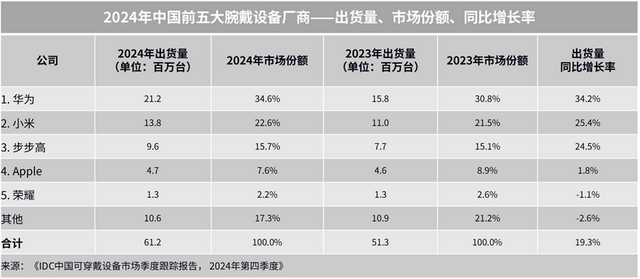
It is evident that as Chinese companies rise and introduce more high-quality products, Apple's sales in China are suffering across the board. Despite this, Apple remains a formidable force in terms of quality. Domestic brands compete primarily on cost-effectiveness, which will continue to be a key strategy for them moving forward.



